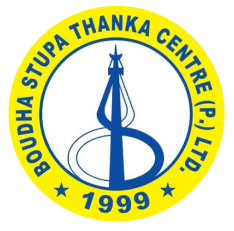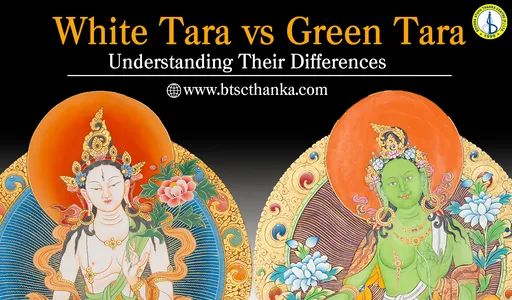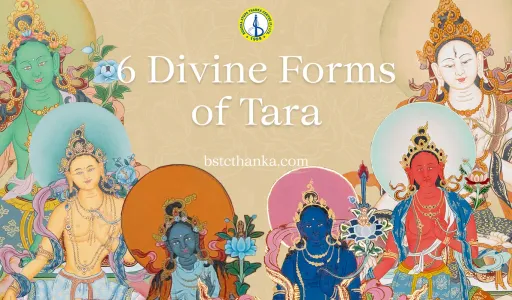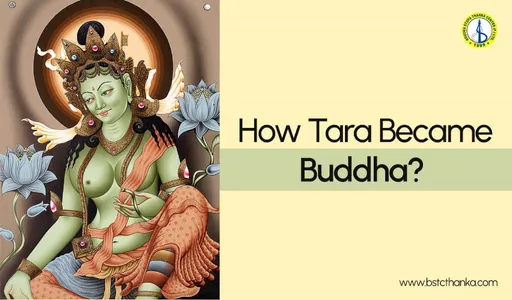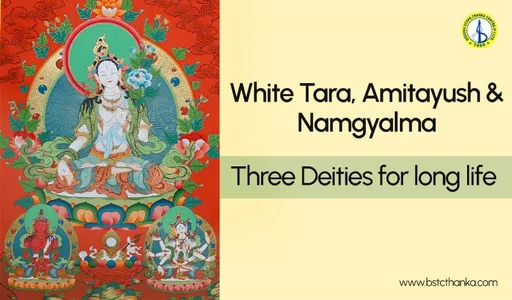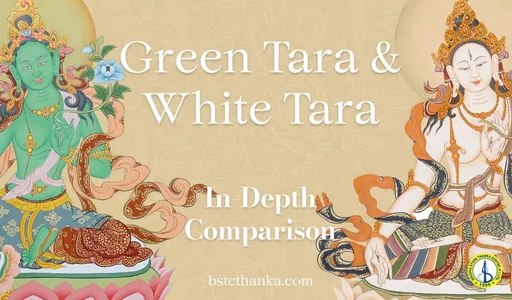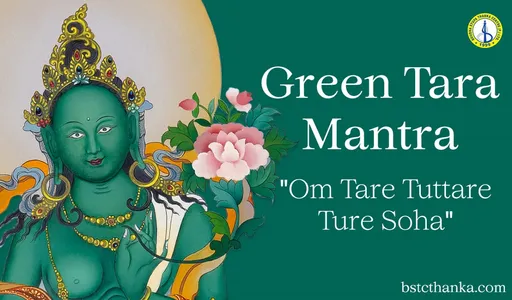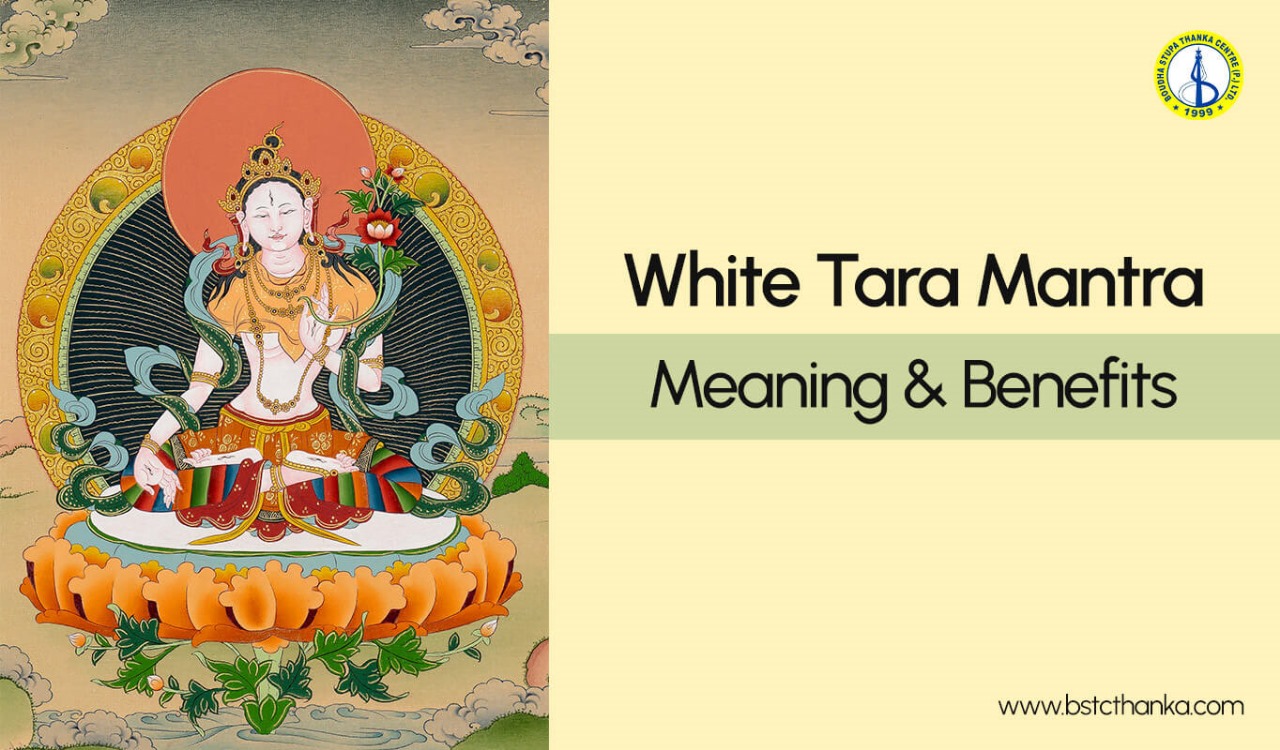
White Tara Mantra: How to Pronounce?: Meaning and Benefits
White Tara is a beloved figure in Tibetan Buddhism, known for her compassion and healing abilities. She is often depicted with seven eyes, symbolizing her ability to see the suffering of all beings. White Tara is associated with long life, health, and wisdom. Many people turn to her for protection and guidance, believing that she swiftly responds to their prayers with comfort and support.
The White Tara mantra, “Om Tare Tuttare Ture Mama Ayuh Punya Jnana Pustim Kuru Svaha,” is chanted to invoke her blessings. Pronouncing this mantra correctly is believed to bring many benefits, such as good health, long life, and spiritual growth. Each word in the mantra has a special meaning and purpose, contributing to its powerful effects. In this blog post, we'll explore how to properly pronounce the White Tara mantra, delve into its significance, and discuss the various ways it can positively impact your life and spiritual practice.
What is the Mantra of White Tara?
The mantra of White Tara is a sacred sequence of Sanskrit words that are believed to embody her essence and power. In its most common form, the White Tara mantra is: "OM TARE TUTTARE TURE MAMA AYUH PUNYA JNANA PUSTIM KURU SVAHA." Each word in the mantra has a special meaning and purpose, contributing to its powerful effects. By chanting this mantra, individuals seek to invoke White Tara’s blessings for long life, good health, and spiritual growth.
Practitioners chant this mantra to call upon White Tara's energy for various purposes. These can include seeking protection, increasing longevity, gaining wisdom, purifying negative karma, and enhancing spiritual growth. The White Tara mantra is often recited during meditation or prayer, and some people incorporate it into their daily spiritual routines. By repeating the mantra with focus and devotion, it's believed that one can forge a stronger connection with White Tara and invite her healing and transformative energies into their life.
Meaning of White Tara Mantra
The White Tara mantra is a revered Buddhist chant that invokes the blessings and protection of the enlightened female deity, White Tara. This powerful mantra is believed to cultivate compassion, longevity, and healing.
The meaning of the White Tara mantra can be broken down as follows:
Om: The universal sound, representing the essence of the universe. It embodies the primordial vibration from which all existence springs and symbolizes the sacred nature of all things.
Tare: Calling upon Tara, the liberator who helps overcome fears and obstacles. This syllable invokes Tara’s compassionate energy to assist in navigating through life's challenges and difficulties.
Tuttare: Specifically addressing liberation from the eight fears, external dangers, and internal delusions. This segment of the mantra helps in overcoming a range of fears and obstacles, both seen and unseen.
Ture: Signifying liberation from disease and suffering. It invokes Tara’s healing power to alleviate physical and emotional pain, promoting well-being and relief.
Mama: Invoking blessings for oneself. This word personalizes the mantra’s effect, focusing Tara’s blessings and protection directly on the practitioner.
Ayuh: Long life. This term requests the gift of a prolonged, healthy life, emphasizing vitality and longevity.
Punya: Merit and virtue. It represents the accumulation of positive karma and virtuous deeds, enhancing spiritual growth and favorable outcomes.
Jnana: Wisdom. This element of the mantra seeks the illumination of knowledge and understanding, helping one to gain deeper insight and clarity.
Pustim: Increase or abundance. It requests the amplification of resources, prosperity, and overall abundance in one's life.
Kuru: Do or make. This word signifies the action or manifestation of the blessings and intentions invoked by the mantra, bringing them into reality.
Svaha: So be it; a closing affirmation. It serves as a concluding statement that affirms the mantra’s power and the realization of the practitioner's wishes.
How to Pronounce White Tara Mantra?
Proper pronunciation of the White Tara Mantra is important to unlock the full potency of this sacred invocation. Here's how to pronounce the mantra:
Om: Pronounced as "Aum" (a long "o" sound followed by "m").
Tare: Pronounced as "Tah-ray" (with emphasis on the first syllable).
Tuttare: Pronounced as "Too-tah-ray" (the "oo" like in "too," followed by the same rhythm).
Ture: Pronounced as "Too-ray" (similar to "Tare," with a long "u" sound).
Mama: Pronounced as "Mah-mah" (with soft "a" sounds).
Ayuh: Pronounced as "A-yoo" (with a long "a" and a short "yoo").
Punya: Pronounced as "Poon-yah" (with the "u" sounding like "oo" in "moon").
Jnana: Pronounced as "Jnah-nah" (the "j" is soft, and the "a" sounds are pronounced clearly).
Pustim: Pronounced as "Poos-teem" (with a long "oo" sound).
Kuru: Pronounced as "Koo-roo" (each syllable pronounced clearly).
Svaha: Pronounced as "Svah-hah" (with a soft "h" sound at the end).
White Tara Practice
White Tara Practice is a meditation in Tibetan Buddhism that focuses on White Tara, the goddess of healing, long life, and peace. Practitioners visualize White Tara sitting on a lotus, shining with pure white light. This light represents her compassion and healing energy, which helps to purify and protect the practitioner. Chanting the White Tara Mantra, Om Tare Tuttare Ture Mama Ayuh Punya Jnana Pustim Kuru Svaha, is a key part of the practice. Each word in the mantra has a special meaning, contributing to the overall spiritual benefit.
The practice also includes making offerings like flowers and incense to show respect and devotion. These rituals help create a sacred space and deepen the connection with White Tara. Meditating on White Tara Thangka helps develop qualities like compassion, patience, and wisdom and aids in overcoming obstacles and fears. At the end of the practice, practitioners dedicate the positive energy they’ve gained to the well-being of all living beings. This act of selflessness enhances the spiritual benefits of the practice, making it a beautiful way to cultivate inner peace and compassion.
Benefits of Chanting White Tara Mantra
Regularly chanting the White Tara mantra is believed to bestow a multitude of spiritual and practical benefits:
1. Healing:
The mantra is known for its healing properties, promoting both physical and emotional well-being. It helps alleviate suffering and illness, providing a sense of relief and comfort
Regularly chanting the White Tara mantra is believed to bestow a multitude of spiritual and practical benefits:
2. Longevity:
White Tara is often associated with long life and good health. Chanting her mantra is said to invoke blessings for a long and healthy life, extending one’s lifespan and enhancing vitality.
3. Compassion:
Reciting the mantra cultivates empathy and loving-kindness towards all beings. It helps practitioners develop a compassionate heart, mirroring the boundless compassion of White Tara herself.
4. Wisdom:
The White Tara mantra enhances understanding and supports spiritual growth. It aids in developing wisdom and clarity, helping practitioners navigate life’s challenges with greater insight.
5. Protection:
Chanting the White Tara Mantra provides a shield against obstacles, negative influences, and adversity. It offers protection and guidance, ensuring a safe and harmonious path for the practitioner1.
6. Spiritual Growth:
Regular practice of the mantra elevates one’s vibrations, creating a vibrational shield of positivity and clarity. It strengthens powers of intuition and attraction, fostering a deeper connection with the spiritual realm.
By incorporating the White Tara Mantra into daily practice, individuals can experience these transformative benefits, leading to a more balanced, compassionate, and enlightened life.
Conclusion
White Tara mantra is a powerful tool for cultivating compassion, healing, and spiritual growth. By understanding the meaning and proper pronunciation of this sacred chant, practitioners can unlock its profound benefits and deepen their connection with the White Tara, the embodiment of nurturing kindness.
Through regular practice of the White Tara mantra, individuals can experience enhanced well-being, increased longevity, greater wisdom, and profound protection. The mantra's ability to open the heart, alleviate suffering, and manifest abundance makes it a valuable resource for anyone seeking personal transformation and a more harmonious life.
FAQs
What is the White Tara Mantra?
The White Tara Mantra is a sacred chant in Tibetan Buddhism, “Om Tare Tuttare Ture Mama Ayuh Punya Jnana Pustim Kuru Svaha,” believed to bring blessings of health, longevity, and spiritual growth.
How often should I chant the White Tara mantra?
It's beneficial to chant the mantra regularly, such as daily or several times a week. Consistent practice can deepen your connection with White Tara and enhance the mantra's effects.



